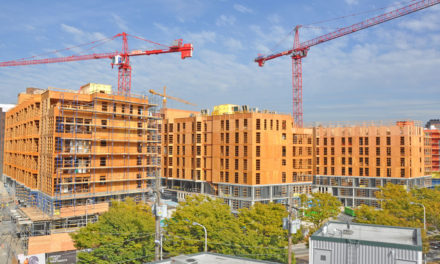CLEAN Future Act aims to achieve net-zero emissions by 2050
The American Institute of Architects (AIA) applauds Energy and Commerce Committee Chairman Frank Pallone, Jr. (D-NJ), Environment and Climate Change Subcommittee Chairman Paul Tonko (D-NY) and Energy Subcommittee Chairman Bobby Rush (D-IL) for pursuing policies that will help the U.S. achieve net-zero emissions by 2050.
Specifically, the Energy and Commerce Committee released the framework of a proposal—the Climate Leadership and Environmental Action for our Nation’s (CLEAN) Future Act—outlining industry and economic solutions to the global climate crisis. The framework details a myriad of measures aimed at eliminating emissions in the built environment, including establishing energy targets that would improve model building energy codes and provide for net-zero energy buildings by 2030; aiding states and Tribes in the adoption of model building energy codes; and creating incentives for investing in energy efficient technologies. Additionally, the proposal would reauthorize and expand the Weatherization Assistance Program, which supports low-income households by increasing the energy efficiency, health and safety of their homes.
“We commend Reps. Pallone, Tonko and Rush for their commitment to providing a path forward to these critical solutions,” said AIA EVP/Chief Executive Officer Robert Ivy, FAIA. “More than ever, we need meaningful legislation and incentives that support industries, business owners and homeowners in playing a role in climate action. We are committed to continuing to work with the committee to finalize the details of these important policy goals.”
Last September, AIA 2018 President Carl Elefante, FAIA, testified on behalf of AIA before the U.S. House Energy & Commerce Committee’s Subcommittee on Energy on the critical steps the United States must prioritize in order to reduce greenhouse gases in the built environment.
The testimony followed AIA’s landmark initiative calling on architects around the world to support humanity’s collective call to climate action through an unrelenting commitment to sustainable and resilient design.
More information on AIA’s advocacy efforts and climate action initiatives are available online.





